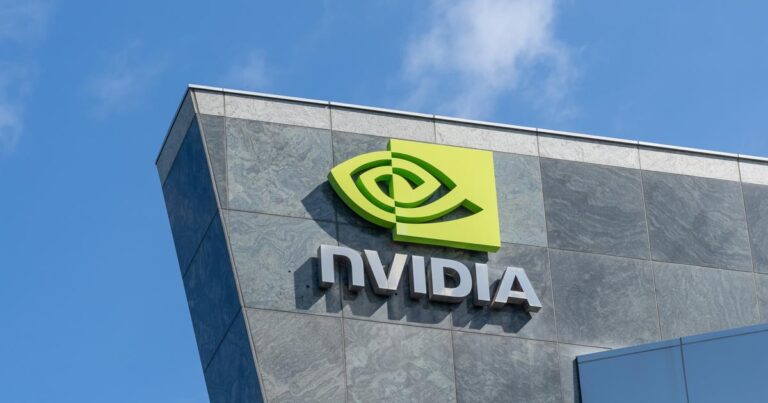Nvidia Corporation (NASDAQ: NVDA) has reportedly begun receiving U.S. government licenses to export its advanced H20 chips to China, marking a significant development amid ongoing trade restrictions and geopolitical tensions. The move comes as Washington continues to balance national security concerns with the interests of American technology firms seeking access to the world’s largest semiconductor market. This latest update could have far-reaching implications for Nvidia’s business operations and the broader semiconductor industry.
Nvidia Begins Securing U.S. Export Licenses for Advanced H20 Chips to China
Nvidia has reportedly initiated the process of securing U.S. export licenses to supply its cutting-edge H20 GPU chips to China, signaling a significant development amid ongoing tech trade restrictions. The H20 chips, known for their exceptional performance in artificial intelligence and high-performance computing applications, have faced strict regulatory hurdles given their advanced capabilities. Obtaining these licenses suggests a potential easing or strategic adjustment in U.S. export policies, reflecting the growing demand and global reliance on powerful AI accelerators.
The move carries important implications for both Nvidia’s market positioning and the broader semiconductor supply chain. Key points to consider include:
- Enhanced Access: Authorized exports may enable Chinese cloud providers and AI developers to accelerate innovation using Nvidia’s most advanced hardware.
- Industry Impact: The license approval could set a precedent for other tech firms navigating export controls in geopolitically sensitive regions.
- Policy Nuances: Balancing national security concerns with commercial interests remains a delicate aspect of the evolving trade framework.
| Chip Model | Primary Use | Estimated Performance |
|---|---|---|
| H20 | AI & HPC | Up to 5x faster than prior generation |
| H100 (Predecessor) | Deep Learning | Industry standard for AI training |
Implications for U.S.-China Tech Trade Amid Growing Semiconductor Restrictions
In a notable shift, Nvidia has begun securing U.S. government licenses to export its advanced H20 chips to China despite heightened semiconductor export restrictions targeting key technologies. This development underscores a nuanced approach by U.S. authorities aiming to balance national security concerns with commercial interests and strategic competition. While the restrictions seek to limit China’s access to cutting-edge AI and processing units, the issuance of licenses suggests selective allowances, particularly for products deemed less sensitive or coupled with strict compliance measures.
These emerging trade dynamics carry significant implications for both countries’ tech ecosystems. U.S. semiconductor firms could find renewed opportunities in the Chinese market, but must navigate a complex regulatory environment characterized by:
- Stringent licensing requirements that impose transparency and usage limitations.
- Heightened scrutiny to prevent technology diversion to military or restricted applications.
- Potential shifts in supply chain strategies as companies adapt to geopolitical pressures.
| Factor | Impact |
|---|---|
| Licensing Flexibility | Allows select exports but reinforces compliance |
| Trade Tensions | Sustains risks of retaliatory measures |
| Innovation Dynamics | Could accelerate China’s chip development efforts |
Strategic Recommendations for Investors Navigating Nvidia’s Expanding Market Access
Investors should carefully monitor Nvidia’s evolving regulatory landscape as the company secures U.S. export licenses for its advanced H20 chips to China. This development signals a potential easing of geopolitical constraints that have previously limited Nvidia’s market penetration in one of the world’s largest and fastest-growing tech markets. To capitalize on this, stakeholders might consider a diversified approach that balances exposure to Nvidia’s expanding revenue streams while accounting for possible regulatory fluctuations. Key considerations include:
- Incremental market access: Gradually increasing exposure as export approvals stabilize.
- Supply chain resilience: Evaluating Nvidia’s ability to adapt production and logistics amid ongoing export controls.
- Competitive positioning: How Nvidia’s technological differentiation impacts its foothold against Chinese chipmakers.
Additionally, investors should weigh the potential impact on Nvidia’s valuation metrics, as expanded access to China could drive notable revenue growth and margin expansion in upcoming quarters. Below is a simplified outlook comparing possible revenue scenarios driven by market access changes:
| Scenario | China Market Access | Estimated Revenue Growth | Implication for Investors |
|---|---|---|---|
| Base Case | Partial, consistent licenses | 5-8% YoY | Moderate confidence, hold or increment positions |
| Optimistic | Full export approvals | 10-15% YoY | Strong buy, capitalize on growth momentum |
| Downside | Export restrictions resume | Flat or negative growth | Risk mitigation, consider stop-loss strategies |
Wrapping Up
As Nvidia begins securing U.S. export licenses for its H20 chips to China, the move signals a potential easing of technology restrictions amid ongoing geopolitical tensions. Market watchers will be closely monitoring how this development impacts Nvidia’s business prospects in China as well as broader U.S.-China trade dynamics in the semiconductor sector. Further updates are expected as regulatory approvals progress and the company’s export activities expand.




